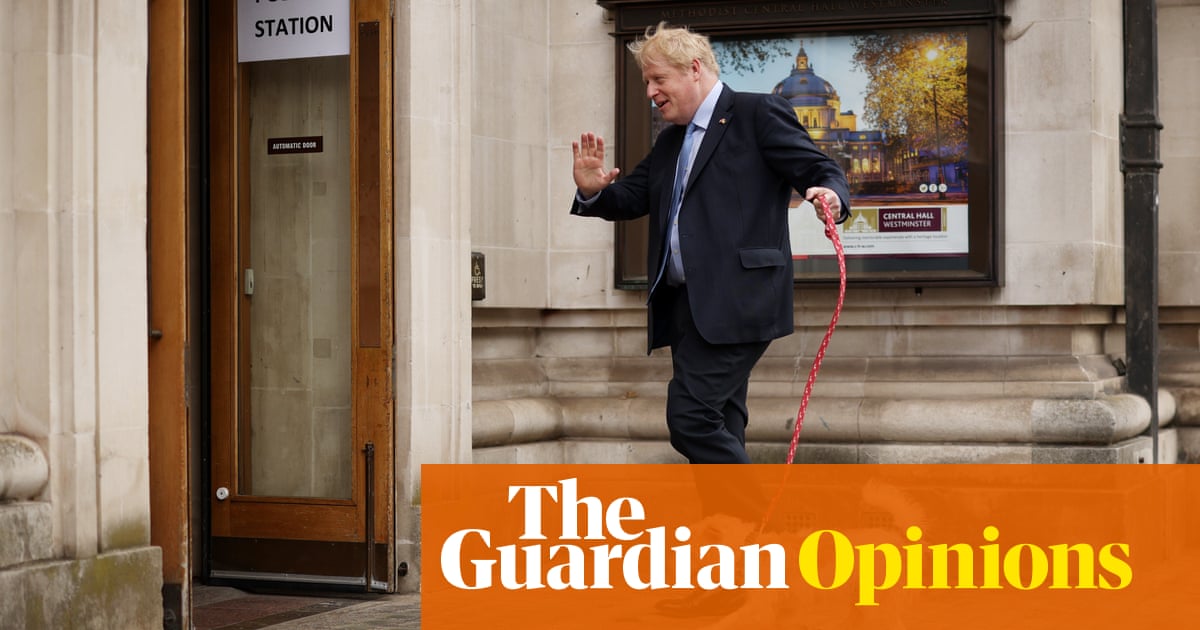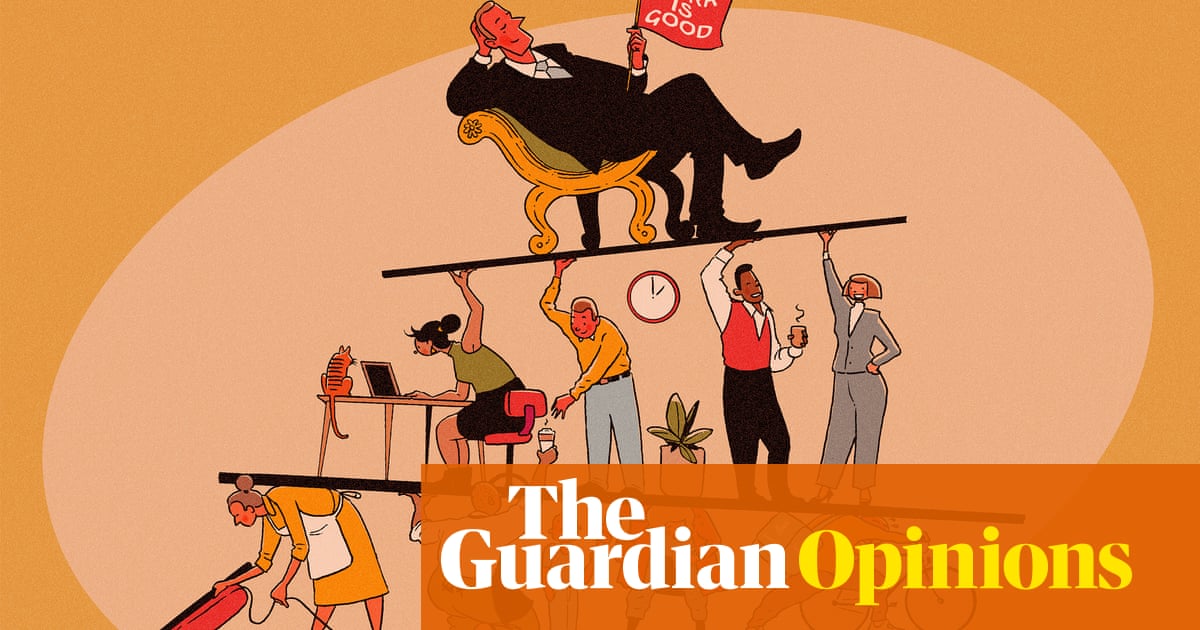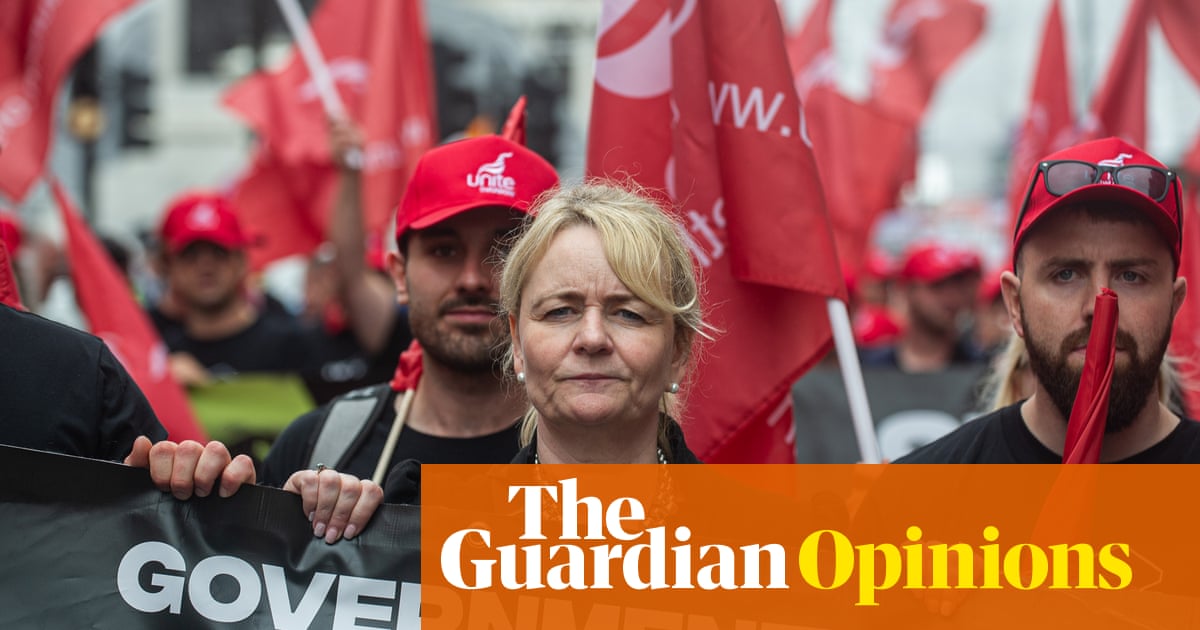
The British historian Alex von Tunzelmann explained to me a few years ago why we are unable to discuss empire without denial and defensiveness. “Empire is still all around us,” she said. “It is still so integral to everything about Britain that we don’t really see it at all.” This lesson can be applied equally to our tendency to deny unpleasant and ubiquitous features of our politics. Ever since the Conservative party threw itself aggressively into a culture war during the Brexit referendum, the effects of this strategy have been constantly minimised. Academic research, polls and media analysis regularly misread the right’s hugely successful strategy, concluding that the culture war is not really taking place at all.
No one seems to have told the Tories. In his speech last week, Boris Johnson issued the standard statements on history and Churchill, throwing in a story on school sports day races that had no winners. Elsewhere, the MP Jake Berry ridiculed “woke-ing from home” and the party chairman, Oliver Dowden, warned leaders of cultural organisations: “Go too woke, risk going broke.”
Many explanations for the right’s recent successes point to Johnson’s force of character, to the mandate for Brexit, to the party’s “optimism” and Labour’s infighting, but rarely to how convincingly and consistently the Conservatives have sold themselves to a broad electoral coalition as the spiritual caretakers of the country against a diffuse threat from the left.
The culture war isn’t taken seriously because there is a poor understanding of what it is and how it works. Many purveyors of political factual analysis discount the strategy because it doesn’t constitute a tangible policy whose effects can be easily measured. Its impact is not captured by polls, nor easily correlated to how people say they will vote. And so we are told that the culture war is a fiction, a social media hallucination or a preoccupation of elites.
According to the Financial Times, the relish with which Conservative members received pronouncements on identity and history at last week’s party conference are a sign that the party is in a bubble: “The country is struggling to fill up cars and fearing that there may not be enough pumpkins for Halloween or turkeys for Christmas – few are occupied with the issues that make up the so-called culture war.” So the culture war is now not just an irrelevance, but an indulgence.
Yet this war isn’t about issues, it’s about frequency. It’s about forging a view of the world in which concerns about fuel or turkeys are filtered. Few people have Churchill in mind when they’re picking their local MP, or particularly care what the National Trust says about the dubious history of its properties when they can’t fill their fuel tanks. But if the government creates an impression that there are imminent threats to our way of life – aided by scaremongering about loss of identity, status, control over our fate and the very erasure of our past – those fears can easily be stretched in the public mind to also include loss of jobs or secure income, the lack of school places for children, or the lengthening waiting times for doctor’s appointments, all of which come into play at the ballot box.
The culture war transforms emotionally resonant issues into a political force that untethers the government’s performance from reality. The goal is to make people think that, sure, things are bad, but perhaps it’s not strictly the government’s fault. And, even if the government were to blame, things would certainly be worse under the other lot, who will empty not just your supermarket shelves but your pockets too when they transfer your already meagre capital to immigrants and others underserving of it. Economic instability actually helps maintain this jittery status quo: the more volatile life is under the Tories, the more likely people are to be afraid of it getting out of control.
Perhaps the confusion is in the name. “Culture” sounds like something marginal: not central enough to people’s lives to have a massive influence on their political behaviour. And most skirmishes that the media likes to amplify are silly and embarrassing to take part in: the unedifying (often fabricated) debates about removing or editing old episodes of classic TV shows or literature, arguments over cultural appropriation, and the size of the union flag in politicians’ offices.
But the culture war includes others things that aren’t just cheap fodder for the tabloids or Piers Morgan’s Twitter account. They include a punitive border policy that treats all migrants as either benefits or NHS scroungers, or wage suppressors. They include the defunding of academic institutions and museums, and even interfering in the appointment of senior personnel at the BBC. These attacks sharpen the public’s sense of moral purpose and help to galvanise voters in a country they perceive to be under siege. When Labour “rises above” it, as has been the party’s strategy in recent times, it cedes this emotional terrain to the right and then wonders why voters regard it as soulless.
There is a belief on the part of many sensible liberals, academics, thinktankers and political advisers, that anything not rational cannot possibly resonate with voters in any meaningful way. Yet the entire business of making electoral majorities is a colossal exercise in triggering people’s worst impulses or stirring their best instincts. Neither is achieved through calls for a “fully costed” manifesto or a “smart” government. If Labour is failing to challenge the Tories, it is because the culture war surrounds progressives so completely that they cannot really see it at all.
Nesrine Malik is a Guardian columnist












